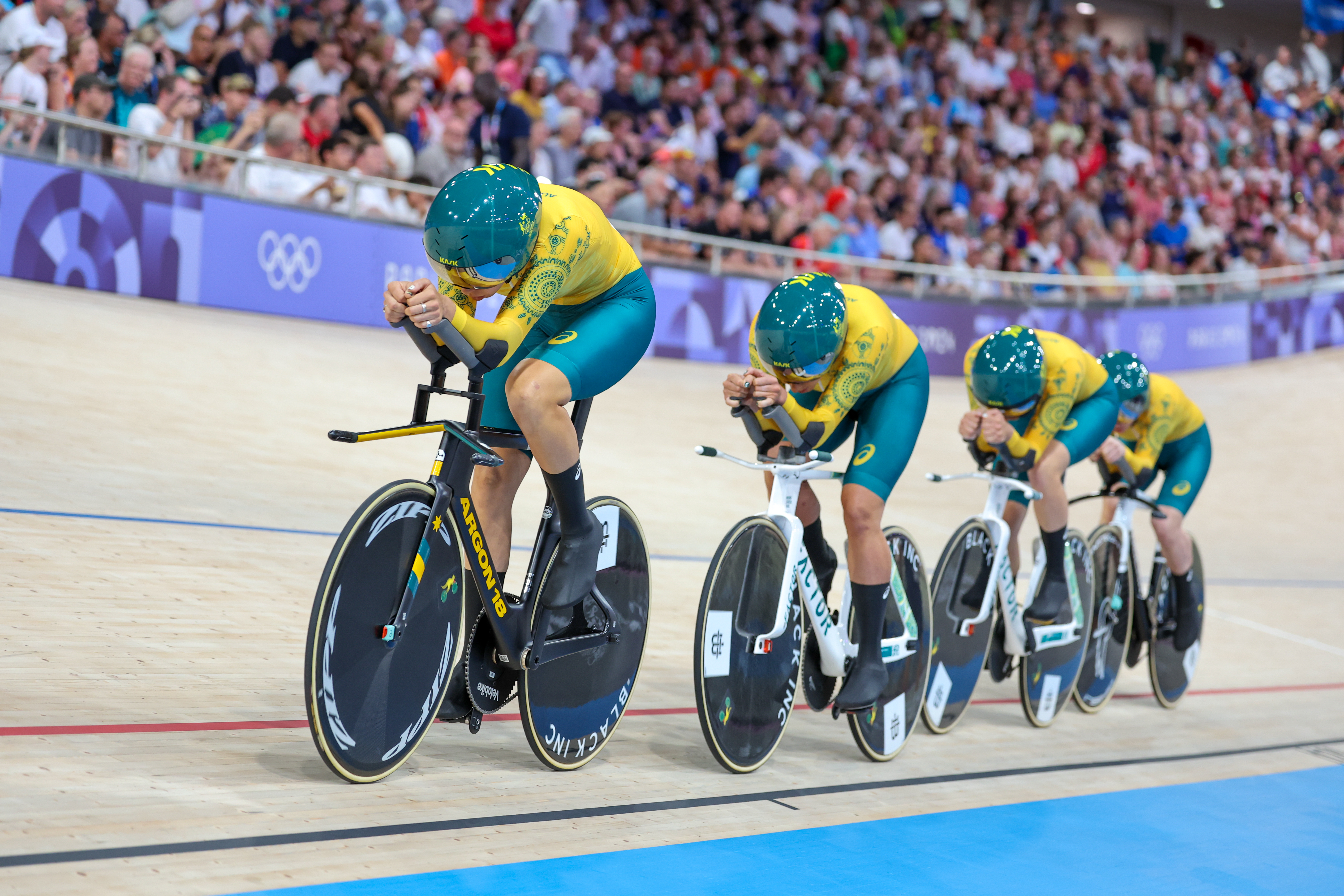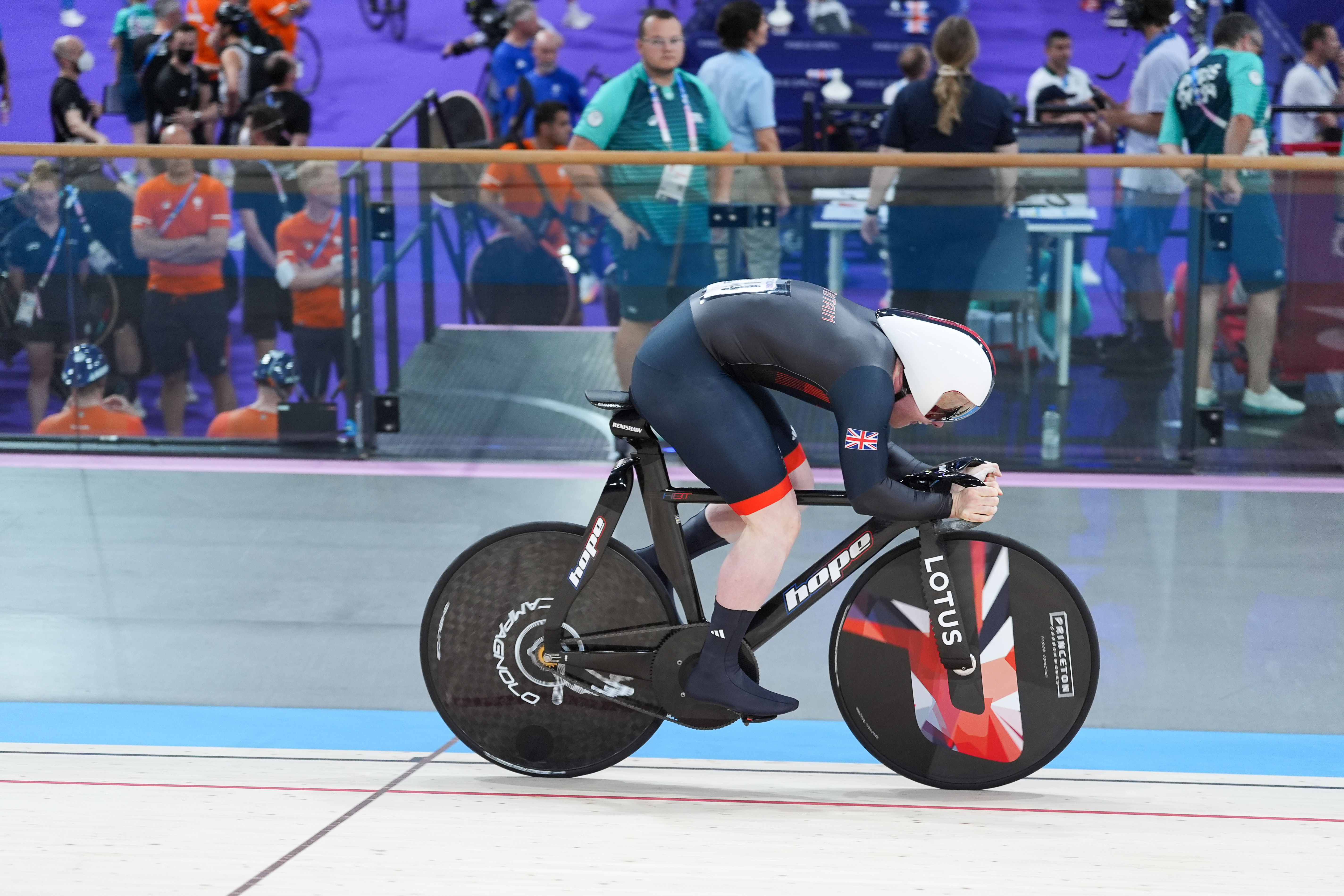
The mismatched bikes and wheels of the Australia women's team pursuit squad at the Paris Olympics are due to "individual optimisation", rather than budget strains, the nation's performance director has said.
At the Games, the Australian men's quartet are all riding Factor bikes, which were specially developed and retail at $59,990 (£47,217). The women's squad, however, are using three different bikes in the event, including cheaper Argon 18 and Dolan models, some with mismatched wheels.
Speaking to Cycling Weekly, AusCycling performance director Jesse Korf said the decision was made for "purely individual optimisation".
"It has to do with position," Korf said. "The [Factor] frames, obviously, are made in a mould. They've got a couple of specific sizes, and we were able to get the vast majority of riders into their perfect position. But where that wasn't [possible], we went with a platform and a different approach that was faster for each rider.
"All of the men are on Factor bikes. We have half the women's team on Factor bikes in the team pursuit. We've got Georgia Baker and Chloe Moran on Argon and Alex Manly on a Dolan. Then in the bunch events you'll see primarily Pinarellos."
While some nations, such as Team GB, are tied to using a sole bike sponsor, Australia choose to have "partnerships" with brands, allowing them to optimise set-ups for each rider in each event.
Those using Argon bikes in the women’s team pursuit are also using non-uniform wheels, with Zipp on the front and Black Inc at the rear. Manly used a different combination on her Dolan, with a Campagnolo wheel on the front, and a Black Inc at the rear. According to Korf, the mismatches are a performance decision.
"What we tested fastest for pursuits was having a flat front, and a lenticular rear," he said. "So depending on the fork shape and the front end of the bike, we want to maintain that flat and lenticular combination. Some of [the bikes] fit both of the Black Inc wheels, but not all of them do. So, aerodynamically, we want to stick with the same principle and carry that through."
Team GB have also been using incongruous wheels in Paris, with the men's and women's team sprint squads running Princeton on the front, and Campagnolo at the rear.

AusCycling say they tested their equipment over two years to decide the fastest set-ups for the Paris Olympics. During that time, they struck a "research partnership" with Factor, and contributed half of the development budget for a new track bike.
The bike has since been released publicly with a £47,217 price tag, making it the second most expensive inside the velodrome, behind Japan's £108,000 V-Izu TCM-2.
As the UCI requires all equipment to be publicly available, price points are often inflated to effectively take products off the market. The cost of the Factor bike, Korf explained, "doesn't influence" AusCycling.
"We get X amount of bikes," he said. "It's not a cost factor. It’s purely optimisation."
The country's men's team pursuit squad set a new world record using the Factor bikes on Tuesday evening, clocking 3:40.032 and taking a staggering 1.3 seconds off the previous benchmark. They will face Team GB in the final for gold at 17:33 UK time today.
Australia's women's quartet qualified sixth on Tuesday, and missed out on the medal ride-offs after Wednesday's first round.







